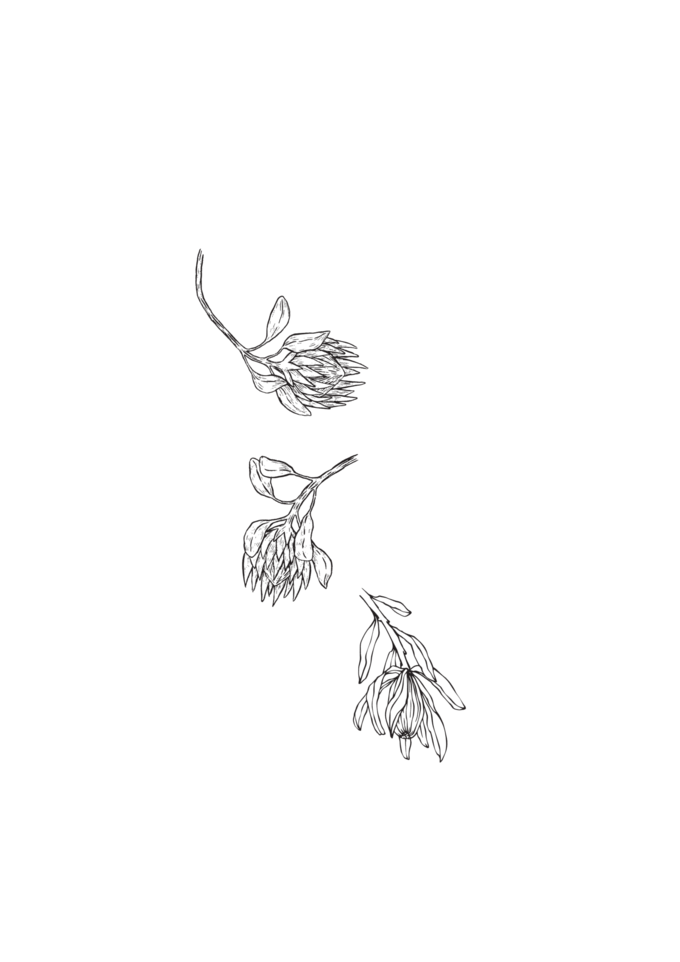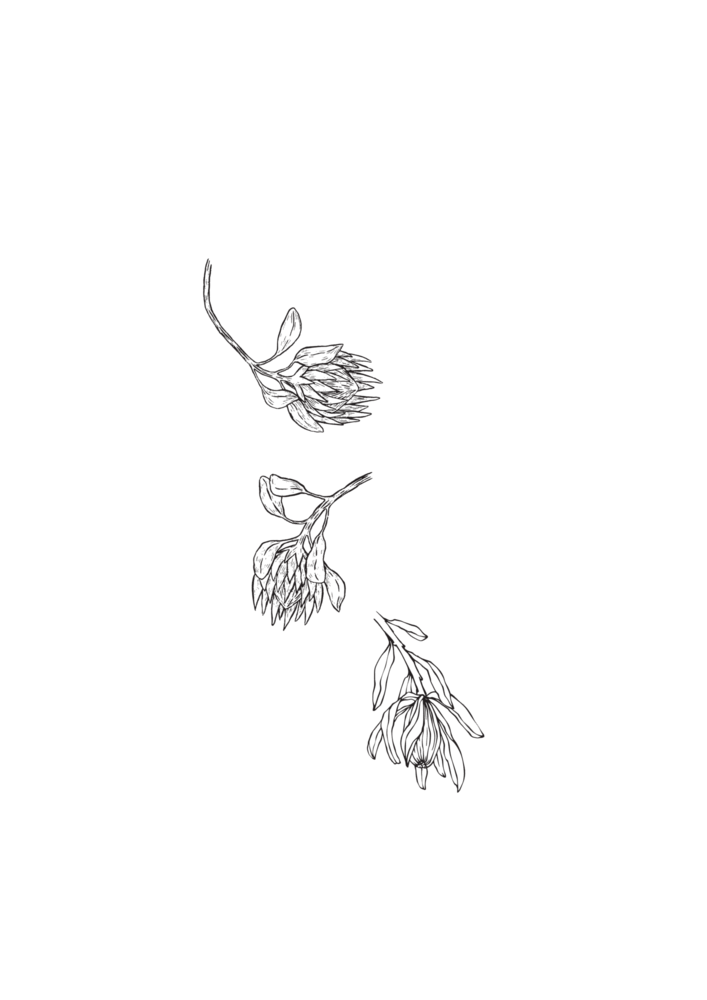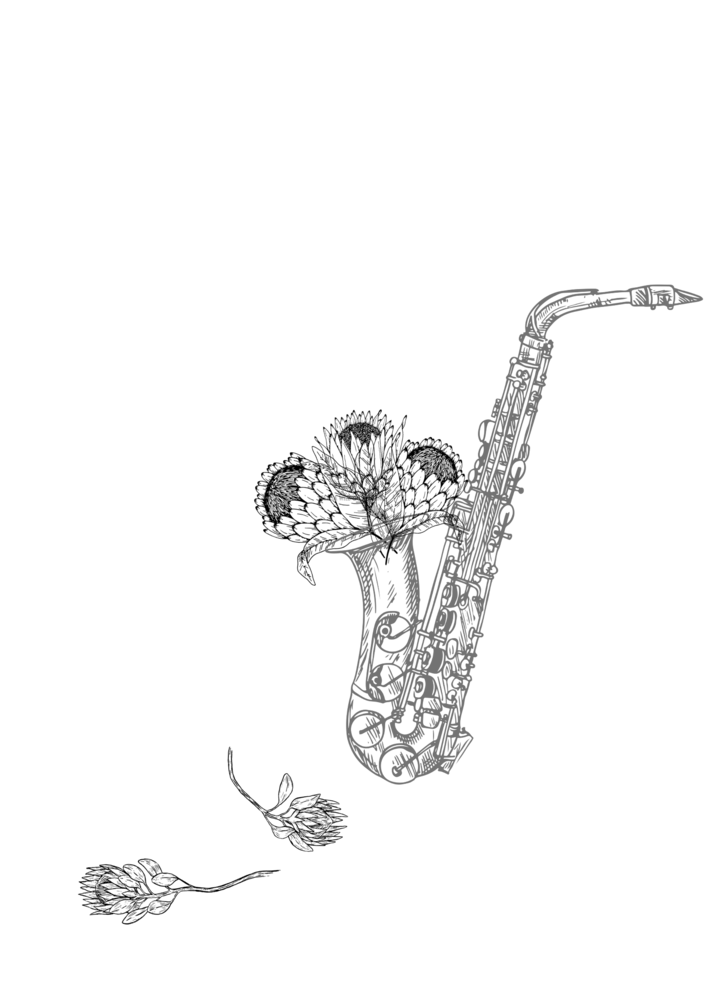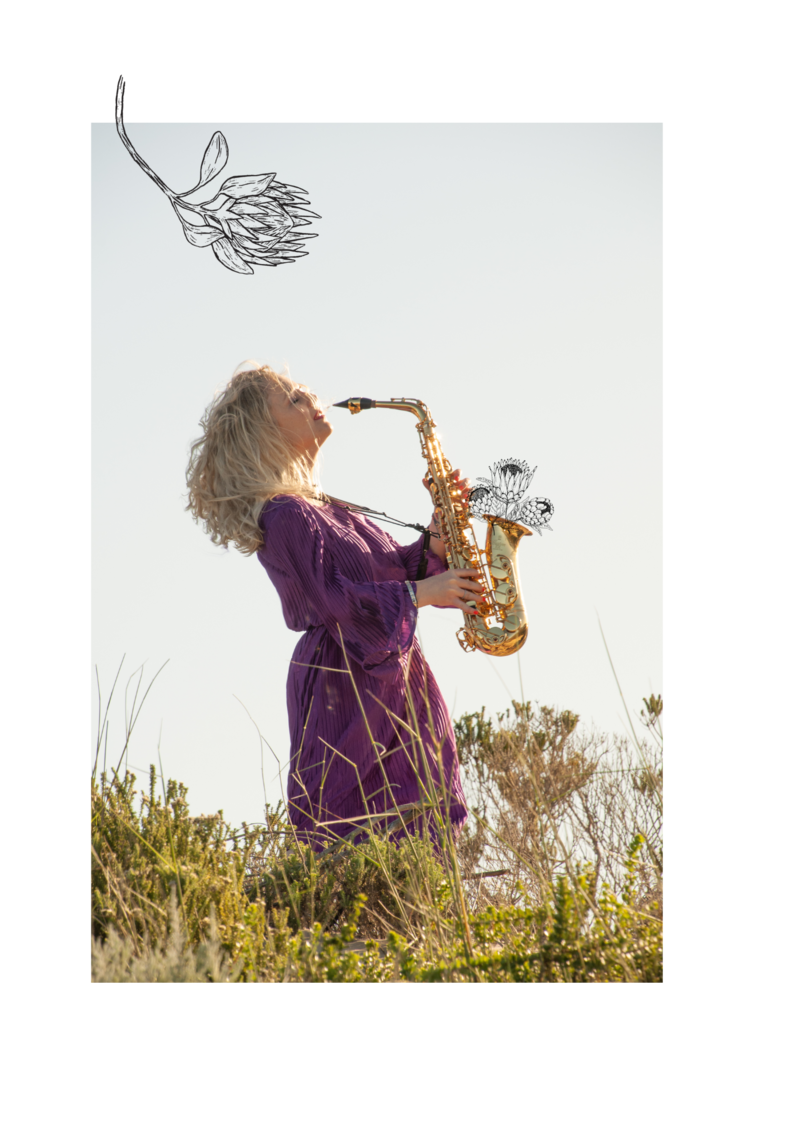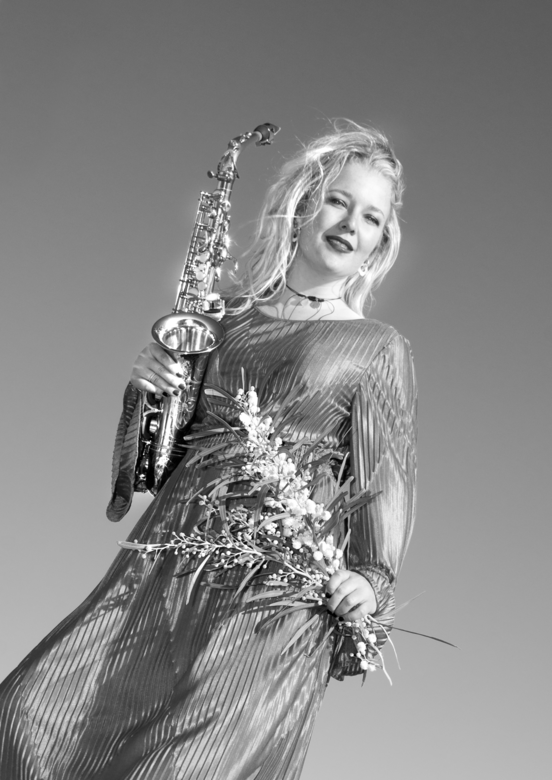2.1 Introduction
In this chapter, I will explore the term “South African Art music” from my personal experiences as well as in dialogue with several South African composers. I tried to keep the responses as authentic as possible, therefore some answers are left untouched and un-paraphrased, with my critical reflections on these findings and arguments.
I begin this chapter by reflecting on my identity within South Africa.
Diversity! Diversity! Diversity! And roots + Europe's gaze on Mzansi
“I mean, my main question here is please define “South African”... Is South African music a homogenous style? I strongly contest that by South African do they mean: Traditional Venda music? Do they mean jazz being played in Khayelitsha? Do they mean in a city? Johannesburg? Urban music? Do they mean dance?... (Loveday, 2023)
Conrad Asman referred to 'South African Art Music' as being a broad term that can refer to many different types of art music composed by South Africans or with South Africa in mind (Asman, 2024). He states that a distinguishing factor could be that a significant portion of music composed possesses a direct relationship with South African cultures, whether as musical interpretation, as a narrative programme or as a wider inspirational foundation (Asman, 2024).
However, viewing South African Art Music from a cultural point of view is further complicated owing to the ancestral origins of some of South Africa’s cultures. For instance, someone like me or Clare Loveday - if we trace our ancestral roots - we cannot claim any roots before colonialism. Although, we are both still South Africans. These same principles could be argued with the majority of composers involved in this project (in Conversation with Dr Andile Khumalo).
The influence of the West is still a prominent one in South Africa. For instance, western art music is taught at almost all the conservatories in South Africa, whereas traditional African music has less of a focus at most conservatories. Loveday describes that during the Apartheid era, there was a much stronger pull towards Europe:
“I mean, this is still true to an extent. The focus was very much to Europe, to try and create in South Africa, a European aesthetic, even though the apartheid government was pouring money into music and composition to sort of generate an Afrikaans culture. It was looking very powerfully to Europe. Now that doesn't mean we're not still looking powerfully to Europe because the gaze of the North as we like to say, is still very strong. But I do think among the newer generation of composers there's much more awareness of new music in South Africa and what that means.” (Loveday, 2024).
Most people, both on and off the record have stated that it is a complicated term to define because of its close links to identity and culture in South Africa - which becomes a huge problem because South Africa is just so diverse. How can there be one definite answer? This creates the question whether or not South African Art Music has a particular sound or sound world. Schonken (2024) explained that because of the inherent diversity in this music, a single South African sound is improbable or unlikely. He relates this to the physical and geographic features of the country which are equally as diverse as our cultures and languages.
The Dangers of South African Art Music + The “cultural gatekeepers” walk among us + nationalism
In my correspondence to Dr Kevin Volans, he cautioned me about using labels for South African Art Music. Volans (2024) explained that grouping any music together under any rubric is tricky as it forces the very music one is looking at to be seen in a particular light - and this light can distort one's observations (Volans, 2024). Volans prefers the term “music written by South Africans” as “South African Art music” implies a school of composition (Volans. 2024).
Hofmeyr (2024) also reiterated a similar concern stating:
“A difficult question [referring to question 1] and perhaps a dangerous one, as any definition will tend to exclude those composers and works that do not 'fit the bill.' I try to avoid generalisations regarding 'national' characteristics where I can, as nationalism is, in my view, responsible for many of the greatest evils of our time, especially in a country like ours”.
Under the Apartheid rule - like in Nazi Germany - music was used as a tool for “national pride” and propaganda. Both Volans and Hofmeyr referred to individuals who act as “cultural gatekeepers” by only considering a work South African if it has “South African elements” (Hofmeyr, 2024). Hofmeyr continued that this is dangerous as this prevents artists from having freedom of expression.
Hofmeyr (2024) states:
“Personally, I have often been inspired by African culture, and I have incorporated African elements in many of my works, both overtly and in more recondite ways, but I do not consider those works 'better' than the rest because of it. I suppose what I am trying to say is that identity is a far more complex thing than any definition could encompass…I suppose I'm an anti-nationalist: I do not admire any music simply because it is South African, and I do not dislike any music simply because it is not South African. I only ask that it speaks to me as a human being.”
From the above themes I discovered, I feel that I have a better understanding of what South African Art Music entails, as well as why it is such a complicated term. What will I find out in my collaborative projects about the process of creating this art and about the misconceptions or “artistic tendencies” of the art in general? Will my findings correspond with the opinions of some of the country’s leading composers?
2.4 Exploring the idea of the term “South African Art Music” through testimony from South African Musicians and Composers
2.4.1 But first: What is “Art Music”?
“Art music” has multiple meanings. One of the widely accepted definitions is music that “requires thoughtful participation by the listener” (Deppe, 2012: 2). In the 19th and early 20th centuries it was perceived as being a predominantly Western Musical type considered to be intrinsically interesting without needing to refer to programmatic explanations (Broyles and Von Glahn, 2012). It is music that is immortalised through being passed down from generation to generation (Deppe, 2012: 2). Synonymous terms that have been used to describe the current term for art music are the following: good music, classical music, serious music, cultivated music, scientific music, or high-art music (Broyles and Von Glahn, 2012). In South Africa, art music is interchangeably understood as being “serious music” (Deppe, 2012: 3)
I can’t put my finger on it…. It just sounds like it!
From the music I have heard originating in South Africa, ranging from various genres from classical to jazz idioms, I sometimes feel there is a particular sound world. I do not quite know how to put it into words. For instance, if I listen to South African jazz in a random playlist I can almost immediately identify that it’s South African. This happens with classical music too.
Why?
Clare Loveday once remarked:
“The players I've worked with overseas have all said to me, I don't think I could quite I mean, would I listen to this and think it's South African? No. But they would look and all say we listen to the two we know it wasn't written in the Global North” (Loveday, 2023 in McClure, 2023: 61).
Schonken (2024) explained that the “characteristics” within South African art music are dependent on how an individual interprets sensory information as well as how they are able to choose or express themselves either in reaction or in the wake of it. The sensory information to which he is referring includes “a dense network of variables that in philosophical terms might span culture, language, heritage, landscape, place and space, education, dialogue, but also genetics and epigenetics, the individual and collective psychologies that stem from there, but also then the music we grow up with and enjoy, how we learn to move and ambulate from our parents and peers, also the vast physical expressive cues we inherit culturally, how religion and ideology shape our engagement with the world” (Schonken, 2024).
2.4.2 Unpacking South African Art Music
“South African Art Music” is a controversial term. Some individuals enforce it, while others deny it. As a South African myself, collaborating with South African composers, I wanted to create a framework of how I identify with the term before embarking on the collaborative journeys. I have attempted to define South African Art Music through my literature study, but how may this perception change if I am challenged with first-hand reflections from composers who are the source of this music?
I acquired the testimony of several South African composers through email correspondence, interviews, and recorded conversations. I wanted to gain a deeper understanding about how they relate to this term. I contacted several South African musicologists who lecture at South African conservatories, but I received no responses from any. I also contacted several South African saxophonists without success. Below I will introduce the interviewees:
Dr Kevin Volans is a South African-born composer residing in Ireland since 1986. In 1997 the BBC Music Magazine listed him as one of the 50 most important living composers. His work is regularly performed worldwide.
Dr Antoni Schonken is a South African-born composer negotiating themes of landscape, displacement, political failure, self-reflection, and queer identity. Schonken's film scores are broadcast by CBS Studios, BBC Earth Canada, Terra Mater, The Smithsonian, and Amazon Prime, and his film works have won awards in SA, the UK, Europe, and the USA. Currently, Schonken is a lecturer at Stellenbosch University in music theory, composition, orchestration, and film music.
Dr Clare Loveday is one of South Africa’s most active and internationally acclaimed new music composers.
Arthur Feder is a lecturer in composition at Stellenbosch University. He is passionate about composition, pedagogy, and the promotion of new music. Arthur’s multifaceted output includes work in jazz, film, mixed media and art music idioms. He regularly receives commissions from leading ensembles and organisations in South Africa and abroad.
Dr Cara Stacey is a South African musician, composer, and musicologist and was the Standard Bank Young Artist for 2021. She plays the piano as well as southern African musical bows namely the umrhubhe, uhadi, makhoyane.
Conrad Asman is a South African composer currently completing his Doctoral degree in Music at the Royal Academy of Music. His works have received international recognition being performed in Africa, Asia, Europe and America in venues such as Carnegie Hall, the Nelson Mandela Metropolitan University and the Jinji Lake Concert Arena.
Professor Hendrik Hofmeyr has been described as being South Africa’s most performed composer of classical music. Hofmeyr was the professor and head of composition at the South African College of Music (University of Cape Town) until his retirement in 2022.
(All biographies were provided by composers for The South African Saxophone Catalogue and were sourced from there)
I proposed the following questions:
-
Do you consider South African Art Music to have any distinguishing characteristics?
-
What are the major differentiating factors between South African art music composed in the Apartheid era as compared to post-Apartheid South Africa?
-
I discovered several recurring themes in the responses:
-
The term “South African Art Music” is a dangerous one.
-
The “cultural gatekeepers” walk among us + nationalism
-
Diversity and culture are aspects that make this music unique, but complicated
-
Eurocentrism in Mzansi
-
South African Art Music: A Sound World?
-
The woes of funding for music in South Africa
-
I was made aware of an example that I will now reiterate here. Dr Andile Khumalo is a well-known South African composer and scholar. There was a review by Lukas Ligeti - the son of György Ligeti on one of Khumalo's works. Lukas Ligeti is currently a lecturer at a prominent South African University. Ligeti stated the following regarding Khumalo's work:
"Andile Khumalo's Shades of Words, a setting of poetry by Alexandra Zelman-Doring, was written in the style of European post-second Viennese- school/Darmstadt modernism. The relevance of this Eurocentric music to the cultural situation in South Africa is debatable, and newly created music in this idiom is almost inevitably derivative. Perhaps Khumalo, now back in South Africa after many years of studies in Germany and the United States, will yet develop a South African slant to this style of music, leading to a more individual voice" (Ligeti, 2014: 9-10).
In essence, Ligeti is seen criticising Khumalo's work for being "not African enough". Volans discussed this with me via email. He stated the following:
"In what way and why is the music composed in a Eurocentric style by a South African [Andile Khumalo] who studied extensively in Europe, 'almost inevitably derivative'? Or does this only apply to music composed in a 'European post-second-Viennese- school/Darmstadt moderni[st]' style - which is, incidentally, a completely inaccurate description of Khumalo's music, which owes more, if anything, to later French spectralism. Would this not be the case if it was composed by a Japanese composer or a white South African? i.e. Is only Khumalo guilty of a transgression, and incapable of writing completely original music in a Eurocentric style? In other words, because of his race or background, is Khumalo incapable of writing with an 'individual voice' in a Eurocentric style? Or is no one capable of writing original music in this 'style'? Does this mean that Khumalo can only become individual or original if he develops a 'South African slant to this style of music'? Does Lukas Ligeti not write or improvise music in a style that is itself highly derivative of an African style? And therefore, not exactly original. Does this not matter? ... if it is derivative from an African style of music? " (Volans, 2024).
Schonken (2024) discussed the lingering effects of Apartheid and the cultural control that was forced upon creatives in the country:
“But cultural control and segregation is the worst possible thing for creativity except in some very niche situations… Apartheid is still carved into our landscape as a stark reminder of how long it takes to foster and grow trust and solidarity. As a white, Afrikaans man, I feel that shadow every day as I try to negotiate our cultural landscape; I'm sure many others still feel it too.” (Schonken, 2024)
This idea of South African Art music having to have particular "South African elements" seems to be a conception that is forced in South Africa's music academia today. I feel that I can say this because I experienced it first-hand in my thesis submission. Volans (2024) describes how this kind of "cross-cultural composition" where South African elements have to be included was imposed upon composers in apartheid South Africa.
He continues:
“The idea of 'cross-cultural' composition was interesting under apartheid, when it was more or less seen as subversive by the ruling government but became completely obsolete after the first democratic elections” (Volans, 2024).
2.2 The Rainbow Nation
South Africa is known for its diversity in cultures, boasting eleven official languages -ranking the second country with the most spoken languages behind India. The Republic of South Africa is a relatively young democratic country with Apartheid ending just shy of 30 years. Apartheid was a policy that presided over the South African government where the white minority ruled over the non-white majority for the latter half of the 20th century. The Apartheid regime sanctioned racial segregation and political and economic discrimination against people of colour (Britannica, n.d.).
South Africa is a unique country as it was racially segregated for over a century, but in under three decades – although not without its deep-rooted issues and reconciliation – the people of South Africa have united in such a way that I do not believe many countries would be capable. It is no surprise that South Africa – or the Rainbow National as it is more affectionately known - is a uniquely diverse country culturally. The term “Rainbow Nation” symbolises unity within diversity and was christened by Archbishop Desmond Tutu after the 1994 elections – a symbolic term for post-Apartheid South Africa. The Rainbow Nation policy constitutes a South Africa governed by peace, forgiveness, and a united multi-cultural population (Sall, 2018: 1-2).
2.3 How do I – the researcher – identify? And why is that important anyway?
Identity can be defined as being both a structural and subjective condition determined by historical forces and the prevailing structures of power relations (Davies 2007: 355). After all, in artistic research, the researcher (subject) cannot be separated from the art (object) (Borgdorff, 2012: 38). Therefore, my own identity will influence the interpretation, collaboration and music created in this project. I would also like to address the implications my cultural background has on how I go about this project.
2.3.1 A Reflection of My Identity
I am a South African. I was born in the small city of Gqeberha (formerly known as Port Elizabeth) in the heart of the Eastern Cape and later moved to Stellenbosch - a beautiful university town in the Winelands and about 30 minutes from Cape Town. I always felt quite lucky at the prospect of living in two different provinces that are greatly diverse in terms of landscape, people, language, political parties, flora, and fauna and are both culturally rich. In terms of my identity in the country - I am a white English-speaking South African who descends from the English, Dutch and French Huguenot settlers. I come from a loving family, went to a prestigious model-C school and was able to go to one of the top universities in the country. I understand that in a country like South Africa, I am privileged. I am very aware of this as this was often a topic of conversation or debate throughout my high school and university years. I often felt confused about my cultural identity: I descend from European blood but have never stepped foot in Europe until now. Moving to Europe made me realise I am not European. But living in Africa I have often been told I am not African enough. People have assumptions about me that are not always true. I am a born-free. I love my country. I love the people. Africa is in my bones. I understand that there is much healing to be done. What my people did in the past is unforgivable. As punishment, I atone for a time I never lived.



